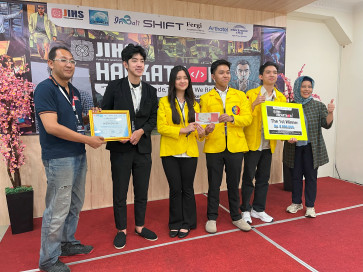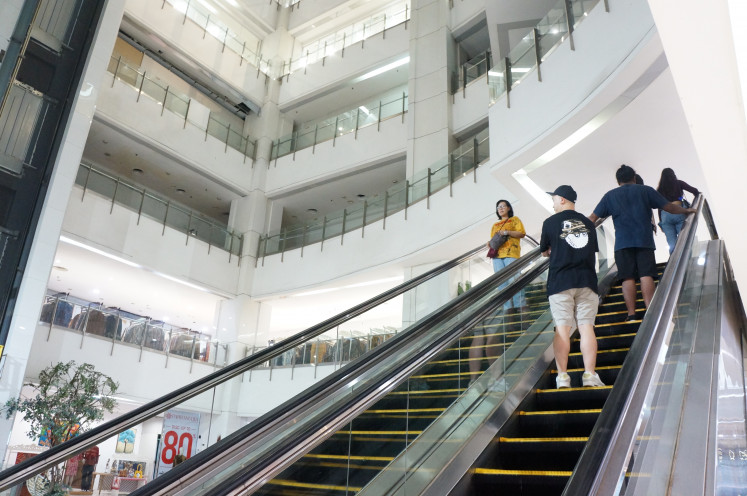BookWORM: Daliana Suryawinata: Looking for sustainability perspectives
JP/Yuliasri PerdaniJakarta-born architect Daliana Suryawinata has many ideas to improve the face of the city
Change text size
Gift Premium Articles
to Anyone

JP/Yuliasri Perdani
Jakarta-born architect Daliana Suryawinata has many ideas to improve the face of the city.
Under the flag of SHAU Architecture and Urbanism, which she founded with Florian Hienzelmann in 2007, Daliana has developed a vertical kampung design for the upcoming social housing to be built for fishermen and fishing industry workers at Muara Angke in North Jakarta.
SHAU, which has offices in Rotterdam in the Netherlands, Munich in Germany and West Java's Bandung, has also designed two innovative public spaces in Bandung. They are Taman Film (Film Park), a semi-open air cinema located under the Pasupati highway, and the Micro Library in Taman Bima, a public library with walls made of ice buckets.
'SHAU works on architecture projects that have social and environmental value. We thrive to make innovations that can contribute to the development of a city,' said Daliana, who undertook her master's degree at the Berlage Institute in Rotterdam.
She is now pursuing a PhD at the Delft University of Technology (TU Delft). 'From the PhD study, I discovered books that talk about sustainability from interesting, different viewpoints.'
Her three favorite books touch on architecture, human consumption and a thought-provoking scenario of the world without humans.
'Communitas': Means of Livelihood and Ways of Life
by Paul and Percival Goodman
Communitas is a rare book about cities and consumption. It can only be found in second hand bookshops in the Netherlands or Germany. I really like it and it serves as a basis for my ongoing PhD research. It is about how people could consume fewer resources and how cities could be more efficient yet with a good quality of living.

'World Wonders'
by The Why Factory
This is an amazing architecture book about the need for more world wonders and grand architecture projects. The last wonders of the world we made were in the distant past. It is a pity.

'The World Without Us'
by Alan Weisman
It tells a story of what might happen to the world if there were no people. It is not a doomed scenario yet it is very interesting to imagine such a situation. It actually talks about sustainability with a different approach.










